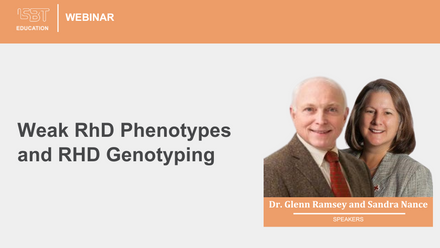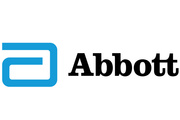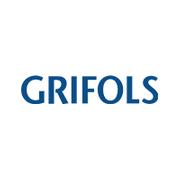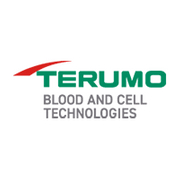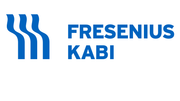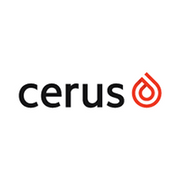The Crossmatching 2.0 session included the following presentations:
1. Christine Lomas Francis: CD47 Biotherapy: A new incompatibility threat
2. Tae-Shin Kim: The effects of IMC-002, a novel anti-CD47 monoclonal antibody, on pretransfusion compatibility testing
3. Wenhui Li: CD71+ RBCs Mediate Increased Erythrophagocytosis and Reduced Monocytes in Human Suspension Assay
4. Ling Wei: Evaluating the clinical significance of alloantibodies against GP.Mur using flow cytometry phagocytosis assay
5. Anne Cornelissen: Detection of erythrocyte alloantibodies in patient sera using a novel flow cytometry approach
MODERATORS: Sofia Lejon Crottet, Roland Fiskesund
After the presentation, there was a questions and answers session, which is also included in the recording.
Abstract
CD47 biotherapy: A new incompatibility threat
Christine Lomas-Francis1, Randall W Velliquette2
1Highland, NY, 2Immunohematology, New York Blood Center Enterprises, Long Island City, NY
Pretransfusion (pretx) testing, including the crossmatch, is the mainstay of safe, effective transfusion. Transfusion services (TS) are skilled in investigating and resolving pretx incompatibilities due to allo- or autoantibodies. Biotherapy using monoclonal antibodies, particularly anti-CD38 and more recently anti-CD47 has presented new challenges to the timely sourcing of compatible blood due to their interference in pretx testing. Many anti-CD47 and CD47-blocking agents are in development or in clinical trials to treat various conditions including cancer, autoimmune diseases and recently in prevention of organ transplant rejection. Techniques to mitigate interference from anti-CD38, which weakly binds to red blood cells (RBCs) and platelets, have been developed and implemented. CD47 glycoprotein is expressed on all body cells, with high expression on RBCs as CD47 is part of the membrane bound Rh complex. CD47 levels are related to the Rhce phenotype in the order of rr > R1r/R2r > R2R2> -D- with weakest expression on Rhnull. CD47 is a marker of self and regulates macrophage mediated phagocytosis by sending a "don't eat me" signal to the signal regulatory protein alpha (SIRPα) receptor. Anti-CD47 drugs block SIRPα interaction, enhancing cancer cell clearance by macrophages. The type of anti-CD47 molecule, e.g., an active or inactive IgG molecule, a fusion protein or a biphasic antibody impacts the potential to bind to RBCs and cause interference. Transient hemolytic anemia has been associated with some anti-CD47 drugs, e.g., Magrolimab (Hu5F9-G4) and Evorpacept (ALX148). In pretx testing, plasma from patients receiving Magrolimab reacts in all phases of testing (4+ IAT), often with 3+ to 4+ immediate spin reactivity and can impact compatibility testing as soon as 1 hour post infusion. Magrolimab can cause spontaneous agglutination and interfere with RBC and plasma ABO typing; it may be impossible to obtain a serological ABO type or perform antigen typing. Magrolimab is subtype IgG4 and compatibility can likely be obtained by using antiglobulin reagents lacking anti-IgG4. If carry-over agglutination is observed, plasma adsorption using enzyme treated RBCs (or platelet products) may be required. For ALX148, a high titer IgG1 antibody, use of IgG4-deficient anti-IgG will not mitigate plasma IAT interference or compatibility tests. The high titer impedes the success of adsorptions and eluate preparations. ALX148 does not hamper ABO or antigen typing. Additional CD47 drugs are in clinical trials. Some, (Trillium TTI-621) do not bind to RBCs, others [Lemzoparlimab (TJ011133), Trillium (TTI-622)] may cause incompatibility that can often be overcome. Treatment of RBCs used for antibody investigation with proteolytic enzymes or 0.2M dithiothreitol (DTT) has no effect on CD47 or drug reactivity. Soluble CD47 or CD47 blocking agents, with the potential to inhibit plasma reactivity, are in development. Although it is anticipated that future CD47 drug development will prioritize those that do not interfere with pretx testing, for the foreseeable future, TS must devise protocols to overcome the interference and incompatible crossmatch. As the DAT and autologous control are usually negative, inclusion of CD47 therapy in the patient history is essential to avoid even more extensive investigation. CD47 targeting agents have unique serological profiles, interference will be drug specific and will require individual, often complex strategies to mitigate. As patients have some degree of anemia and thrombocytopenia following CD47 targeting therapies the possibility for repeat transfusions is increased, further complicating serologic studies. Communication between clinicians and the TS, obtaining a pretherapy sample for baseline ABO and antibody screening and RBC antigen extended pheno- or genotype is key to transfusion safety. The inability to determine crossmatch compatibility and the labor involved in workup of samples from these patients is likely to drive the need for cost-effective extended antigen-matched units for optimal patient care.



